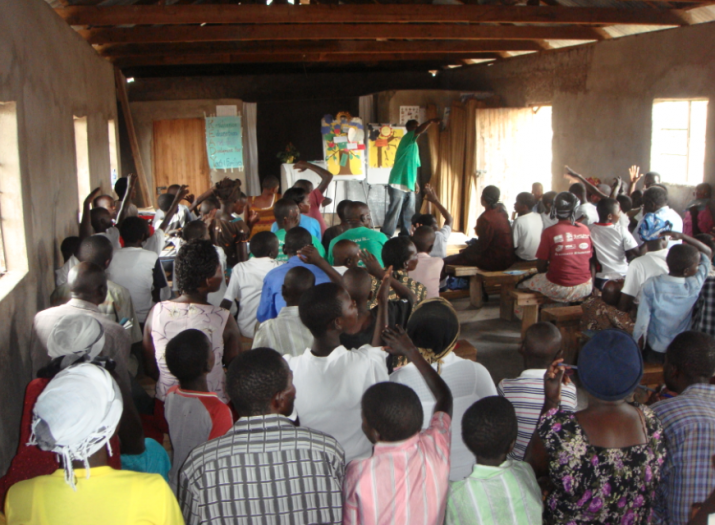Development and Evaluation of a Family- and Church-based Intervention for Mental Health Promotion and HIV Prevention for Adolescents in Rural Kenya

Faculty:
Topics:
Countries:
Sponsors:
- Duke Global Health Institute,
- Center for AIDS Research-Duke,
- NIH-National Institute of Mental Health,
- NIH-Fogarty International Center
Collaborators:
- Women's Institute for Secondary Education and Research
End Date:
-
Completed
Development and Evaluation of a Family- and Church-based Intervention for Mental Health Promotion and HIV Prevention for Adolescents in Rural Kenya
A community-based participatory process was used to develop an intervention for families in a rural community in Western Kenya. As HIV prevalence in this area is estimated at 15.3% and mental healthcare is virtually non-existent, the intervention focuses on preventing mental health problems and sexual risk behavior among youth ages 10 to 16, as well as empowering families to use local resources for economic gain. The intervention is entitled READY: Resiience Education And skill Development of Youth and families and includes 9 sessions delivered to groups of families in churches. All sessions focus on improving family communication and relationships as the foundation for reaching intervention goals. The intervention is based in large part on results from a large, mixed methods formative study that revealed associations between sexual risk behavior, emotional and behavioral health, and HIV-prevention messages that youth receive from their families and adults in the community. A randomized controlled pilot trial of the intervention has been completed, and further development and expansion of the program is currently underway.
Relative to controls, the intervention group reported better family communication across domains at 1- and 3-months post-intervention and higher self-efficacy for risk reduction skills and HIV-related knowledge at 1-month post-intervention. Sexually active youth in the intervention reported fewer high-risk behaviors at 1-month post-intervention, including unprotected sex or multiple partners. Male caregivers in the intervention reported higher parental involvement at both time points, and youth reported more social support from male caregivers at 3-months post-intervention. No effects on secondary outcomes of parenting, social support, and mental health were detected. This intervention holds promise for strengthening positive family processes to protect against negative future outcomes for adolescents. Implementation with religious congregations may be a promising strategy for improving sustainability and scalability of interventions in low-resource settings. Puffer, E. S., Green, E. P., Sikkema, K. J., Broverman, S. A., Ogwang-Odhiambo, R., & Pian, J. (in press). A church-based intervention for families to promote mental health and prevent HIV among adolescents in rural Kenya: Results of a randomized trial. Journal of Consulting and Clinical Psychology.
This family- and community-based intervention holds promise for promoting protective family processes that can prevent future mental health disorders and HIV infection among adolescents. It has the potential to be adapted for other settings and scaled up as part of efforts to disseminate evidence-based programs for adolescent mental health and HIV prevention.
Last updated on January 10, 2018